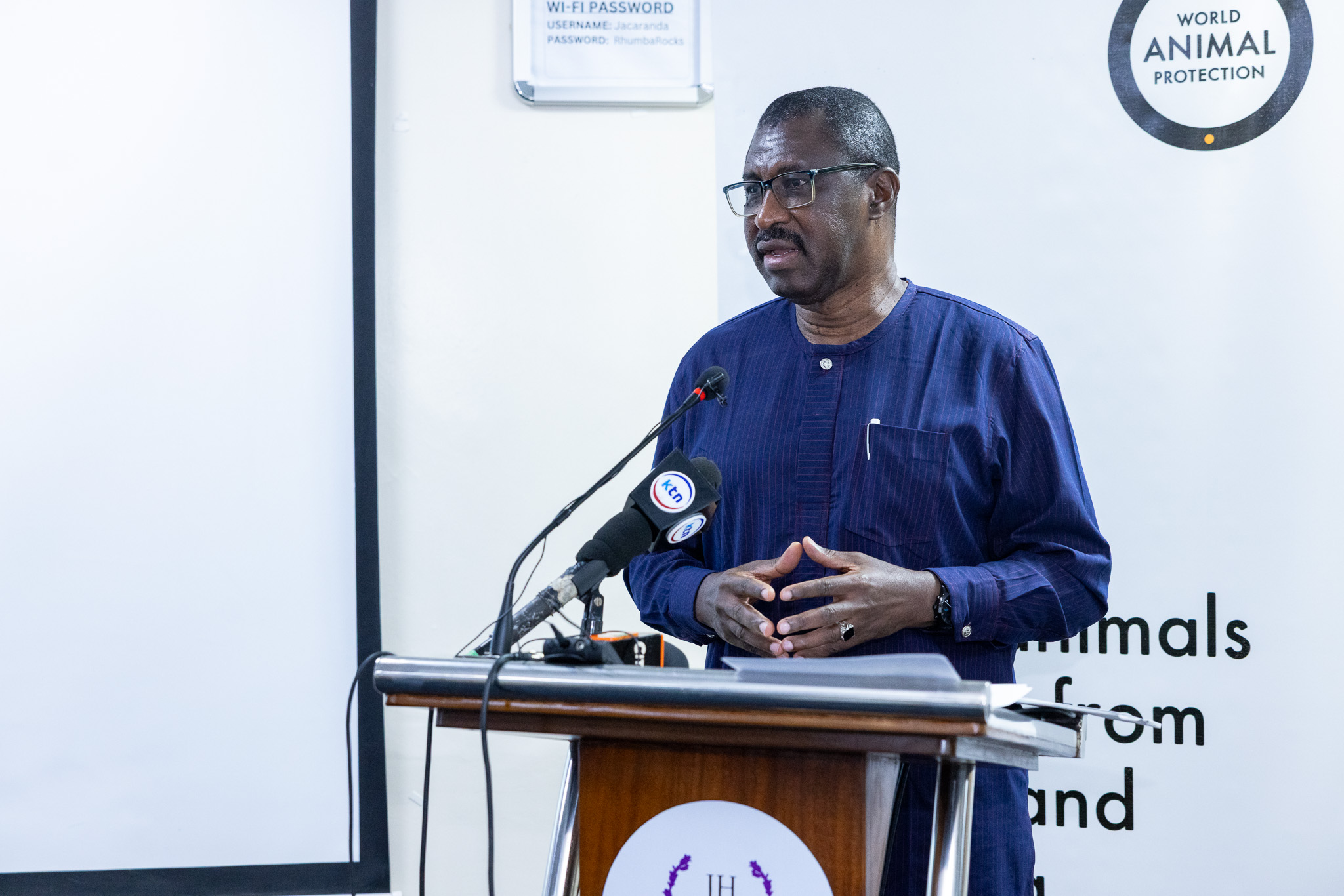
 World Animal Protection Africa Director Tennyson Williams during their report launch on September 23, 2025.
World Animal Protection Africa Director Tennyson Williams during their report launch on September 23, 2025.A new report by World Animal Protection(WAP) has exposed disturbing levels of cruelty and exploitation in Kenya’s commercial wildlife farming industry.
The report, “Behind Bars: Lifting the Lid off Kenya’s Cruel Wildlife Farming,” is based on undercover investigations and months of research.
It reveals widespread animal suffering, public health threats, and practices that undermine conservation efforts.
According to the findings, animals including crocodiles, giraffes, ostriches, tortoises, monkeys, and hippos are bred and confined in facilities that market themselves as conservation and tourism enterprises.
Investigations found overcrowding, untreated injuries, parasite infestations, poor nutrition, and signs of extreme stress as some of the factors affecting the animals.
The report also details how wild animals are illegally captured and passed off as captive bred, fuelling biodiversity loss.
Some venues were found to allow close animal human contact without basic hygiene measures, raising fears of zoonotic disease transmission.
Wildlife Campaign Manager at World Animal Protection Edith Kabesiime said the findings expose the profit driven nature of the trade.
“Our findings confirm that wildlife commercial breeding and farming in Kenya is not about conservation, but about profit at the expense of animal welfare and biodiversity,” she said.
Kabesiime said the illegal aspects of this exploitation are very worrying, putting into question Kenya's pro-wildlife trade policy.
“This report sheds light on the suffering endured by farmed wild animals, exposing laundering of species through the legal systems, and the urgent need for policy change.”
World Animal Protection Africa Director Tennyson Williams therefore urged the government to take immediate steps and strengthen enforcement of wildlife laws.
Williams noted that Kenya has the opportunity to address the gaps especially at a time when the country is in the process of developing a new wildlife law, currently at Bill stage.
“Today as we officially unveil this report, we urge the Ministry of Tourism and Kenya wildlife Services to take leadership in ending wildlife exploitation and setting a precedent for wildlife-friendly policies and practices in the region,” the Africa Director said.




![[PHOTOS] Group of elderly women stage protests at Milimani over missing files](/_next/image?url=https%3A%2F%2Fcdn.radioafrica.digital%2Fimage%2F2025%2F09%2F38d12e22-b2e0-4b3f-a694-d229cdd749e3.jpg&w=3840&q=100)






